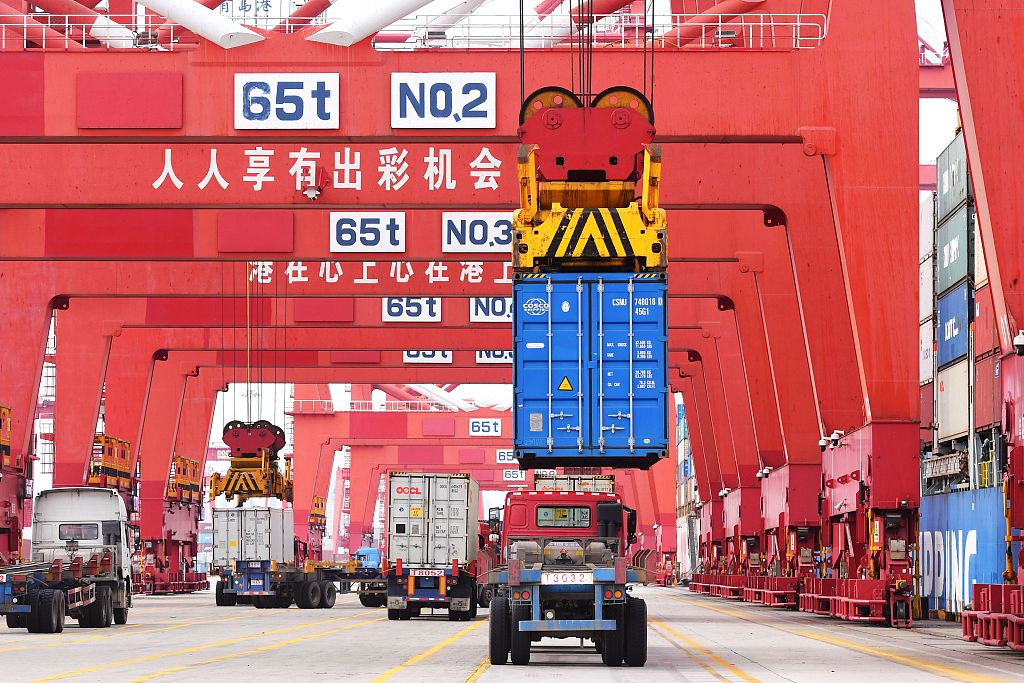Another year starts with optimism in China
- By George N. Tzogopoulos
 0 Comment(s)
0 Comment(s) Print
Print E-mail China.org.cn, January 10, 2022
E-mail China.org.cn, January 10, 2022

The fight against the COVID-19 pandemic has been China's main priority since the beginning of 2020. The battle continued last year under relatively better conditions. The experience of 2020 and massive inoculations facilitated the effort of the Chinese government to place the virus under control and prevent dangerous contractions in the case of new strains such as Delta and Omicron. The insistence on the zero-COVID policy combines a close monitoring of infections when they break out in parallel with the implementation of restrictions when they are required. Having already vaccinated more than 85% of its population by the end of 2021, China remains hopeful that it can obtain herd immunity in 2022.
Notwithstanding tremendous challenges caused, among other things by the pandemic, the Chinese economy has remained strong for another year. The World Bank projects China's real GDP will reach 8% in 2021. Throughout the year, foreign companies continued to invest in China. A Peterson Institute for International Economics (PIIE) report in July asserted that "global economic decoupling from China, or as some call it, reshoring, is not happening." Recent data from the Chinese Ministry of Commerce demonstrated that foreign direct investment into China from January to November 2021 had increased by 15.9% in comparison to the same period of 2020, reaching $157.2 billion in total.
Trade numbers also outline the resilience of the globalization skeleton of the international economy. Eurostat shows that Chinese exports to the EU increased by 18.5% between January and October 2021, and imports by 12.9%. Also, Bloomberg data estimates that Chinese exports to the United States grew by 28.3% in the first 11 months of the year, and imports from the United States surged by 36.9%. In the same period, the Chinese consumption market expanded, and total retail sales of consumer goods rose by 13.7%, amounting to $6.25 trillion.
Although the persistence of the pandemic does not allow safe predictions about 2022, Morgan Stanley believes that China's growth might be better than expected and reach 5.5%, whereas the World Bank estimates 5%. The Chinese government has already started to take drastic measures to respond to the problem of property market debt. In addition, it intervened quickly last September to tackle the energy crunch by producing more coal.
In 2021, China announced the elimination of absolute poverty and began its new journey to patiently create a prosperous society. Technological progress lies at the heart of this vision but data governance remains critical. Last year, the Chinese government put some limits in the operation of big technological companies by creating a strict legal framework, elaborating on the concept of "common prosperity" and supporting competition in line with the standards of the Chinese socialist system. These efforts are expected to accelerate. China's 14th Five-Year Plan (2021-25) identifies the potential of data as a significant growth contributor.
As continuity is the main characteristic of China's history and progress, its metamorphosis will further evolve in 2022. This year, however, is inaugurated with the culmination of the country's preparations to host the Beijing Olympic and Paralympic Winter Games. Fourteen years after the successful organization of the Beijing Summer Olympics, the Chinese government, ordinary citizens, and volunteers are working hard to succeed again. New records, a safe Games, and full stadiums in COVID-19 times will strengthen China's pride and confidence.
George N. Tzogopoulos is a columnist with China.org.cn. For more information please visit:
http://www.formacion-profesional-a-distancia.com/opinion/GeorgeNTzogopoulos.htm
Opinion articles reflect the views of their authors, not necessarily those of China.org.cn.
If you would like to contribute, please contact us at opinion@china.org.cn.





